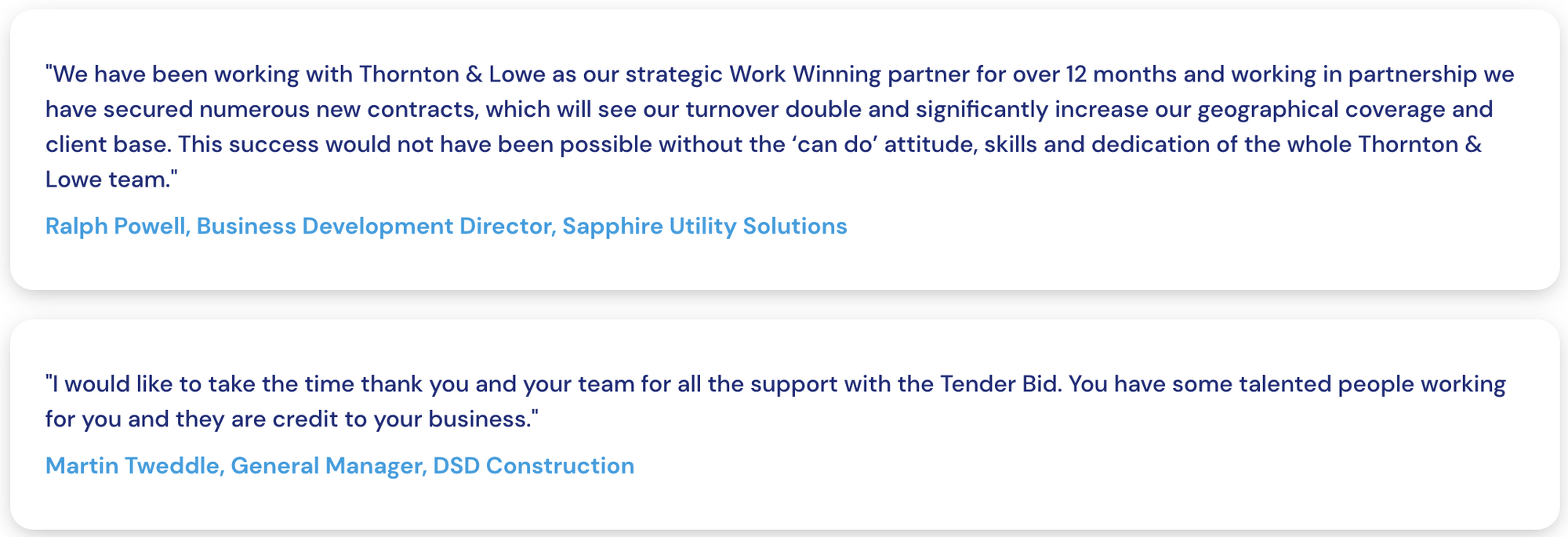Framework Agreements
"Are you on a framework? A procurement framework? A framework agreement we can call-off from?"
If you are being asked this by public sector/ Government clients or prospects and your answer is - "Errr.... yes, I think so. Let me come back to you on that one..." - because you have no idea what they are talking about! This article is for you.
It should be useful for the public sector also - but the focus is on advising businesses in the UK how a framework can actually be an incredible sales tool! Therefore your answer will then be (with a little work or T&L support) - "framework - 100%. Do you have preferred one you use? CCS? Fusion21 - we are on them all. Actually, I think you can do a direct award with your need for our service being so urgent" :) - that might not mean much now - but have faith! It will.
What Is a Framework Agreement?
A framework agreement or framework (when talking to public sector folk or during procurement or trying to sell them something) is pretty much an approved suppliers list. We know it is good to be on approved suppliers lists, especially when you clients spends millions each year. So if you are business which supplies the UK public sector - or wants to - a framework agreement is just becoming approved! That's it. More or less...
It a type of contract that is commonly used as a multi supplier agreement - and it rarely guarantees you work (it's an approved - why should it).
Now because the public sector have to be accountable for what they spend - they need to follow strict procedures when setting up a framework and advertise it. This may seem like a nuisance but once you understand frameworks and bid writing - you'd wish private sector openly advertised their approved lists in the same way!
Another quick win for you - the vast vast majority get advertised on Find a Tender. Crikey - that's excellent info Thornton & Lowe but I really need more of those tendering gems please.... No probs - though I should say we are pretty friendly bunch so please feel free to call us. 01204 238 046 / [email protected] - the FAQ section at the end may also help.
We don't outsource calls, we don't shy away from answering your questions - you may not always like our answers but we are honest! The phone will be answered by Donna, ex-waste management bid manager, bid writer with us and now part of our client support team, Stacey who has helped hundreds of clients wins contracts, especially in domiciliary care but right across the board, or Mr Lee (Adam) - who has been a bid writer with us, then bid manager, and now trains our in-house team of bid writers! Think of it like the opposite of calling the bank. We will answer the phone quickly and with someone who can actually help!
Framework Agreements in Practice
For example, a Council has a range of works to be completed by a group of suppliers, contractors or service providers. Setting up a framework agreement will be an efficient way to work, without having to go through the tender process each time. In this case they set up their own framework agreement for what they need.
Similar to a tender for a contract or ITT, the framework tender is usually a mix of quality and price. The buyer will then review all framework bids and approve a specific number of bidders to be awarded a place on the framework.
Then, when the buyer has a requirement or specific project, they will usually run a mini competition or call off, which reduces the timescales and complexity of awarding specific works.
Alternatively, some frameworks allow a direct award, so no mini competition or call offs. Work could be awarded to a bidder based on a geographical lot which has already been agreed as part of the framework agreement. Some frameworks also award based on performance, which will be measured throughout the partnership.
Third Party Framework Creation and Management
The example above is a single Council setting up their own framework agreement. They have to incur the costs in time to set this up and then manage it of course.
However, many third party organisations are created for UK public sector bodies to use. This can be really beneficial for organisations who lack the expertise or capacity to compliantly and effectively buy-in (or procure) their own products and services. You will likely have heard of some of these, such as CCS, Fusion21, YPO, CPC, NHS SBS for example. Our frameworks page lists them all, as well as providing a live feed to new framework opportunities pulled from Tender Pipeline our free tender monitoring tool.
Some have better reputations than others and will therefore make a better sales tool - we are happy to guide you through the options as we offer a Bid Mentor package, which starts at £750 per month and includes full tender and framework monitoring, as well as monthly guidance, planning and strategy to help our clients access the public sector.
These organisations are a mix of public, private and third sector organisations. A private sector business can only set up a framework agreement by doing so with a 'partner' who is a contracting authority (a public sector buyer). They will set up framework agreements and promote them to the wider public sector such as schools, MATs, NHS Trusts, Universities and local and central government for example. Each time they have a new public sector customer who wants to use the framework - it is a win for the approved suppliers who get a chance to compete for it!
They charge fees either to the supplier or to the public sector buyer as part of their management service. This will always be made very clear in the tender documentation and we guide our clients on this.
Some frameworks like Crescent Purchasing Consortium work more in the education sector - so if you are supplier to schools - it is certainly one to monitor! CCS (Crown Commercial Service) is a key one in the UK for all buyer types. It offers reassurance. If you are going to be asked what framework you are on - CCS is always a very nice answer for a public sector body to here.
Request our FREE Post-Framework Award Guide
Click hereAdvantages of a Framework Agreement
From the bidder/suppliers perspective:
- A framework agreement is a great way to work with public sector bodies. Once approved and procurement compliant you will receive additional opportunities that the wider market will not receive.
- You will also have a sales tool offer - your procurement compliance. A quick and compliant route for the public sector buyer to show they are following best practice by working with you.
- A longer term route to market - largely in place for 4 years but now with the Procurement Act - these agreements could be in place for much longer.
From the buyers perspective;
- The reduction of going through a tender process for each individual aspect of work can offer significant benefits for the buyer. This includes; administration time and costs, potential discounts and savings from suppliers, a more defined and planned approach and trusted expert partners.
- Compliance! Being able to demonstrate and justify your decision making and best practice.
Disadvantages of a Framework Agreement
From the bidder/suppliers perspective:
Many bidders will invest time and money to be awarded onto a framework and then potentially not receive any work through them. So, first of all it is important to weigh up if it is right for your business.
Once awarded a place on a framework, you can’t just wait or expect the phone to ring. You still need to work hard, to get your share of it! This may involve networking at organised events for suppliers, or traditional sales and marketing – but the benefit being, you are already approved to work with them. If, or when, the phone does ring there can often be a short window of time to turn the project around, this can sometimes be exhausting on business resources.
From the buyers perspective:
- While frameworks are heavily relied upon as a procurement solution - there is still some believe that it is a quick fix and if you want a fully bespoke solution there there needs to be a full scale tender. We disagree with this as often with the right planning and pre-engagement of suppliers, and choosing the right framework you can create a call-off which is perfect for your needs.
- Fees! A framework management organisation (as noted above) charges fees - anywhere from 1 to 5% of the contract value. If the public sector buyer has in-house procurement capacity why use these agreements - it will simply incur additional costs? This is true. However, for urgency and speed it is often required. There is also the argument that with a wider established framework agreement - they will have larger economies of scale and therefore will be cost neutral or create savings for the public sector buyer.

How Thornton & Lowe Can Support Your Success with Framework Agreements
Winning a place on the right framework agreement can open doors to consistent contract opportunities, but securing a position requires a strategic approach. From selecting the most suitable framework to ensuring compliance and maximising your success, Thornton & Lowe provides expert support at every stage.
- Framework Selection & Strategy – Helping you identify and apply for frameworks that align with your services, sector, and growth goals.
- Bid & Tender Writing – We write high quality submissions to secure a places on competitive frameworks and achieve the best possible quality scores.
- Compliance & Readiness – Ensuring you meet all framework requirements, from financial thresholds to policies and certifications.
- Maximising Framework Success – Advising on how to use frameworks as part of your wider sales and business development strategy, ensuring you convert opportunities into revenue.
Whether you’re applying for your first framework or looking to improve your success rate, our team ensures you approach the process with confidence
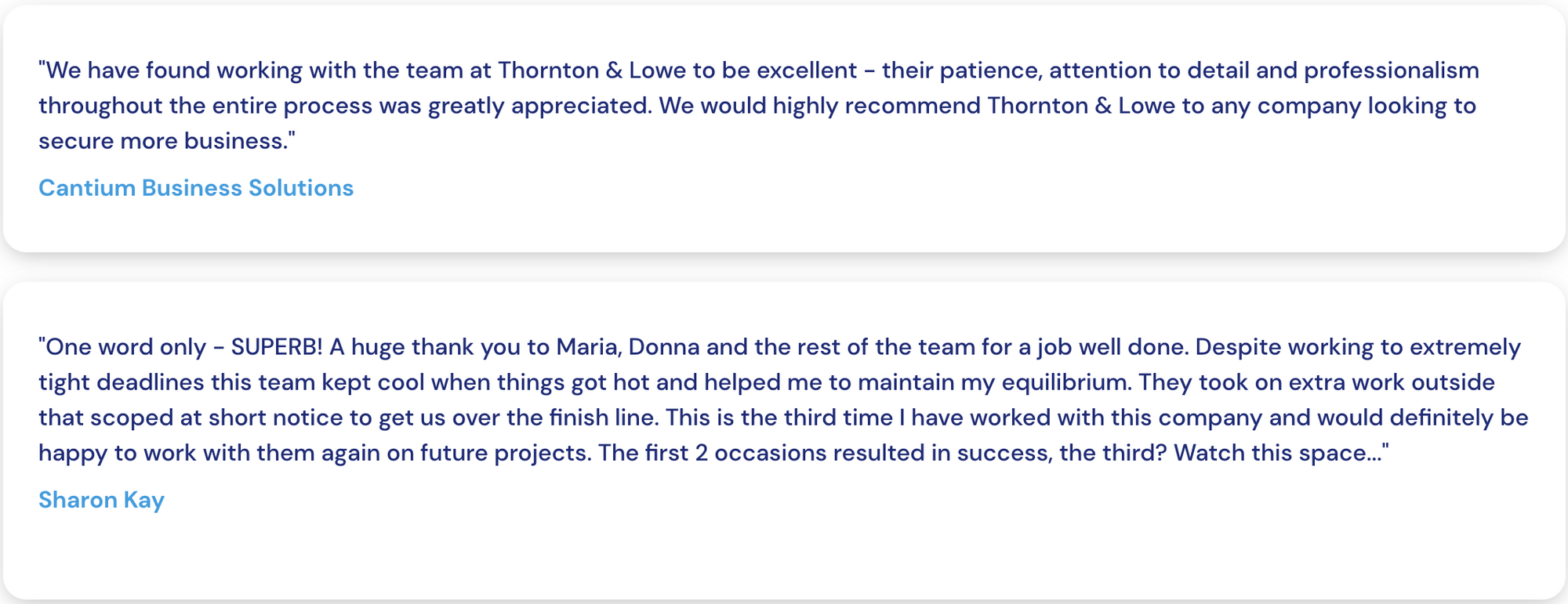
Procurement Rules for the Public Sector
To further explain what framework agreements are - we really need to give a little context.
Public sector buyers aren't spending their cash. It's ours! So they need to spend it carefully. This has led to many procedures and rules to ensure an open, fair and transparent purchasing (or procurement) process.
Typically, if a housing association or Local Authority for example, spend more £10k or under on something the rules are a little more relaxed. They still have to spend carefully and get 3 quotes for example but they may not advertise and following a formal tendering procedure. However, for a public sector body - for most things they will likely spend more. Think of stationary as a low cost example. With hundreds of staff and residents - just in pens and paper they will spend a fortune! If they spend over £50k per annum (as a guide) they really need to run a full tender and advertise it openly. Now imagine doing this across every area of spend - from cleaning to consultants, to IT to maintenance. It would cost them more in procurement time to find new suppliers than it would the cost of what they are buying!
The more efficient route is an approved suppliers list who they know they can easily and quickly work with. If there was ever such a magical procurement tool! Turns out there is and you got it - it's a framework agreement.
To set up a framework agreement, they will need to advertise and still ensure it is open and fair. Once suppliers are awarded onto a framework or approved on the suppliers list - they will be able to compete for specific projects and put forward a quote (this is often called a call-off or mini competition). Some framework agreements are set up which also ensure pre-agreed pricing as well as service levels so therefore may allow for 'direct award' from the framework. This means no further competition. Many businesses use this approach as part of their business development process.
The Procurement Act which is the main guidance now for how public sector buyers need to purchase - changes the rules a little, which we detail below. But not too much!
If you are a supplier it is good to be on a framework agreement. There is a different type of framework agreement also called a dynamic purchasing system (DPS) or now (thanks to the Procurement Act) - a dynamic market. Think of this also as a framework agreement but often easier to win a place on as it is continually open to new suppliers. A key difference from a supplier perspective is that often a DPS does not allow direct award, while a framework agreement is more likely to have this as an option.
You may also like:
The Ultimate Guide to Selling into the Public Sector which explains more about tendering thresholds and decision making for procurement teams working in the public sector.
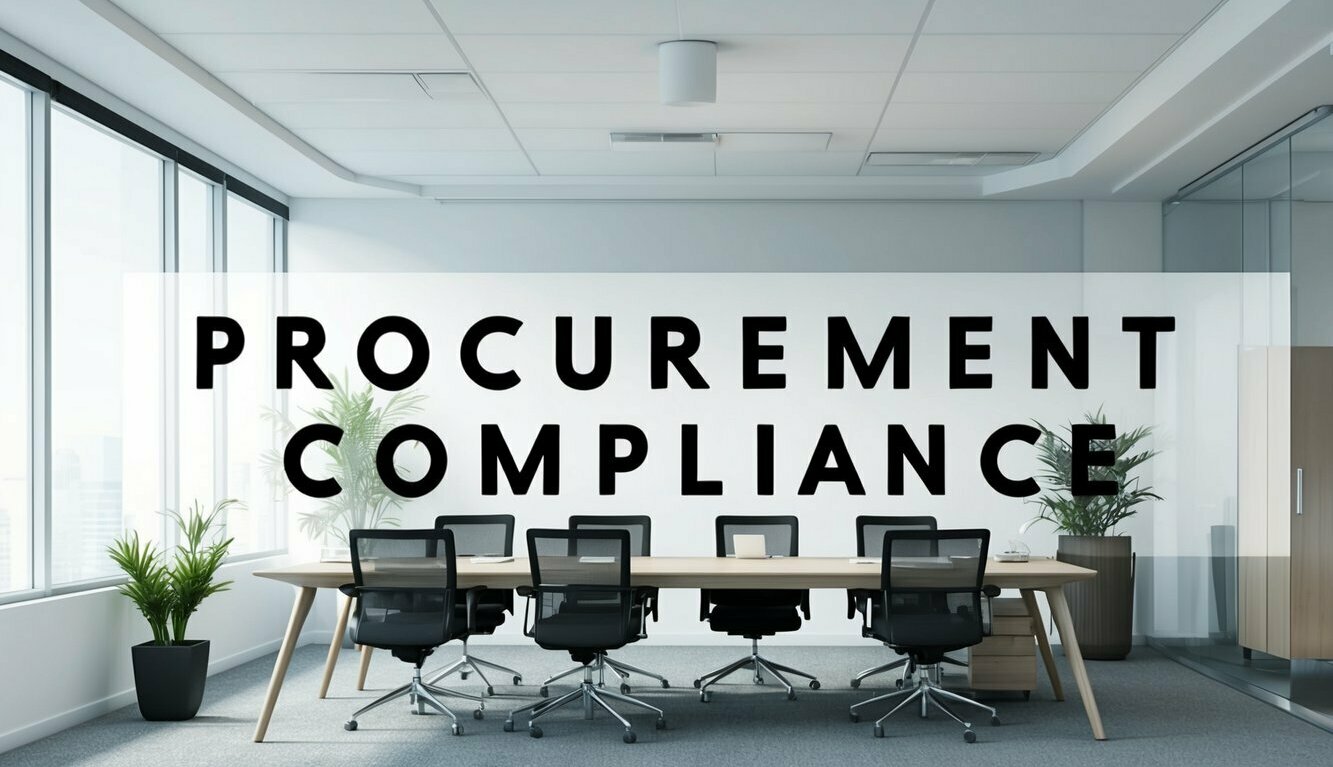
The Procurement Act Impact on Framework Agreements
The UK's Procurement Act 2023 introduces significant changes to the way public sector organisations purchase goods and services through frameworks and dynamic markets.
Frameworks under the Procurement Act
Frameworks are agreements with suppliers that set out terms and conditions for specific purchases made over a set period. The Act simplifies the types of frameworks available, allowing only open or closed frameworks.
Open frameworks permit new suppliers to join at predefined points, at least once during the second and third quarter of the framework term. This flexibility ensures that buyers have access to a diverse and competitive supplier base. Closed frameworks, on the other hand, do not allow new suppliers to join after the initial setup.
The maximum term for frameworks under the Act is 8 years, including any extensions. However, closed frameworks are limited to a maximum of 4 years. Buyers should carefully consider their requirements and market conditions when deciding between open and closed frameworks.
Call-off Contracts and Direct Awards
Buyers can make direct awards under a framework if the terms and conditions are sufficiently precise and complete. This streamlines the procurement process and reduces administrative burdens. If a direct award is not possible, buyers must conduct mini-competitions among the suppliers on the framework.
Mini-competitions follow a process similar to open procedures, with suppliers invited to submit bids evaluated against set criteria. Standstill periods are not required for direct awards or mini-competitions within frameworks, further simplifying the process.
Dynamic Markets: A New Approach
The Act introduces dynamic markets, replacing Dynamic Purchasing Systems (DPS). Dynamic markets are always open to new suppliers throughout their term, with no maximum term limit. This flexibility allows buyers to access a constantly evolving supplier base and encourages innovation.
Suppliers can participate in multiple categories or lots within a dynamic market, providing greater opportunities for engagement. Contracting authorities must assess each supplier's indicative tenders before admitting them to the market, ensuring a high-quality supplier base.
Notices for dynamic markets must be published on the Find a Tender service, promoting transparency and fair competition. Standstill periods apply to admissions to the market and the award of contracts, protecting suppliers' rights and allowing for challenges where appropriate.
Transitional arrangements and key considerations Existing framework and DPS agreements will continue under the old rules until their expiration. Frameworks established before the Act comes into force cannot be extended or modified if doing so would exceed the original maximum term.
Buyers and suppliers should familiarise themselves with the specific rules and timelines for each framework or dynamic market opportunity. The Procurement Act aims to simplify and standardise these processes, but variations may still exist between different agreements.

Framework Agreement Supplier Submission Requirements
Responding to a framework agreement can be similar to responding to a tender. However, tender submissions will require your specific approach, solution and price, compared to a framework, which requires a more general overview of your 'typical' solution, for example. To highlight these differences, we've created a comparison table that outlines the key elements typically asked of bidders in each scenario.
Comparison Table: Framework Agreement vs. Invitation to Tender (ITT)
Framework Agreement Bid Submission | Invitation to Tender (ITT) Bid Submission |
|---|---|
Demonstrate ability to deliver a wide range of goods or services over an extended period. | Provide a specific solution to a well-defined requirement or project. |
Show capacity to handle variable demand and meet potential future needs. | Focus on delivering a specific quantity of goods or services within a set timeline. |
Provide evidence of scalability and adaptability to accommodate evolving requirements. | Demonstrate ability to meet the exact specifications outlined in the tender. |
Offer competitive pricing and terms that will apply to all future call-off contracts. | Provide a detailed pricing breakdown for the specific goods or services requested. |
Highlight relevant experience, certifications, and qualifications to establish credibility in the field. | Showcase directly relevant experience and expertise related to the specific project. |
Demonstrate financial stability and ability to perform consistently over the full duration of the framework. | Provide assurance of financial capacity to complete the specific contract. |
Propose a general approach to quality assurance, performance management, and reporting. | Outline a detailed plan for quality control, milestones, and deliverables specific to the project. |
Demonstrate ability to work collaboratively with the contracting authority and other potential suppliers. | Focus on your individual company's capabilities and approach to delivering the specific contract. |
As the table illustrates, a framework agreement bid requires suppliers to demonstrate their broad capabilities, flexibility, and capacity to deliver a range of goods or services over an extended period. In contrast, an ITT bid as part of a tender submission is more focused on meeting exact specifications, timelines, and deliverables. If you take a 'framework submission' approach to a specific tender it is unlikely you will be successful. The tender feedback will be - "too generic".
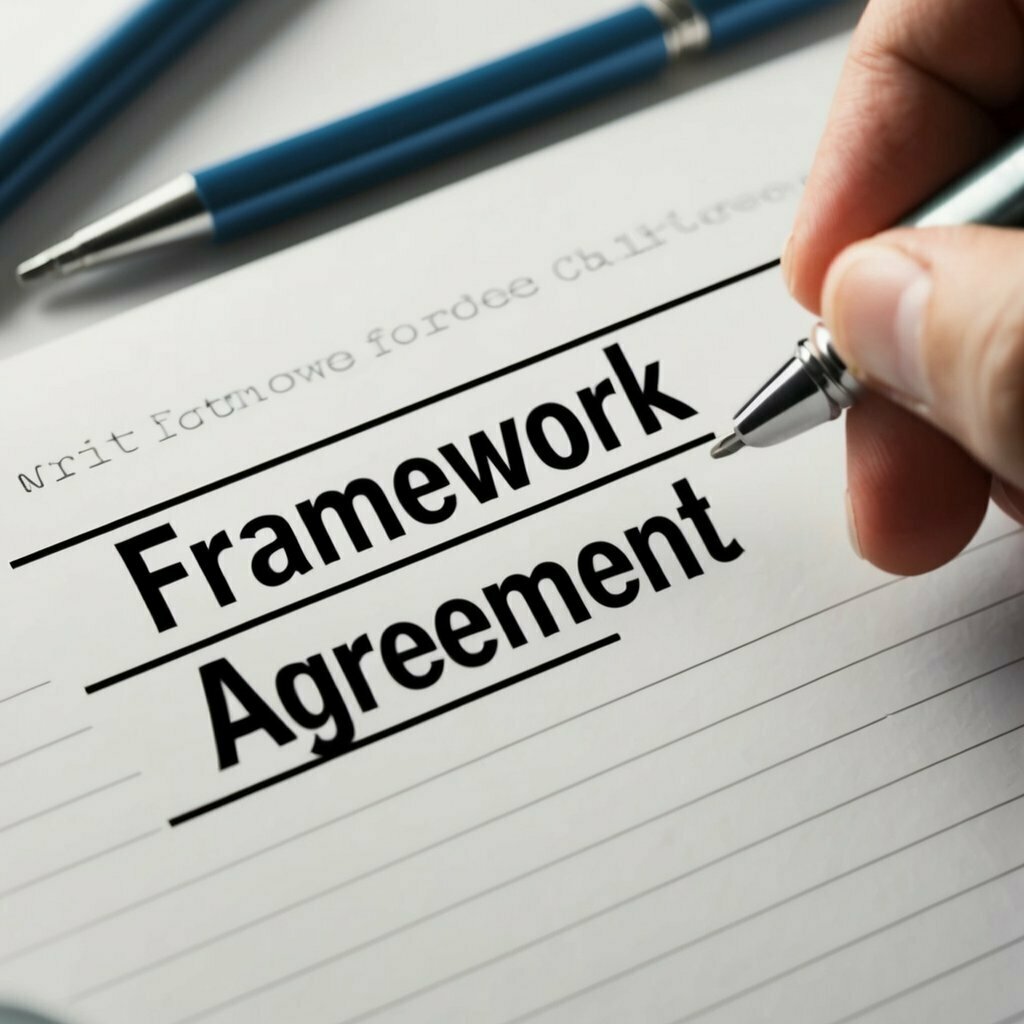
Types of Framework Agreement in Procurement
In the UK, both public and private sector organisations use various types of framework agreements and supplier lists to streamline their procurement processes, ensure consistent quality, and achieve the best value for money.
In the public sector, there are several main types of framework agreements:
- Single supplier framework agreements: This type of framework agreement is established with a single supplier who has been selected through a competitive tendering process. The terms, conditions, and prices are agreed upon in advance, allowing buyers to place orders directly with the supplier without further competition. These are quite often used as neutral vendor solutions to allow a public sector body to purchase almost anything through a single supplier.
- Multi supplier framework agreements: In this type of framework agreement, multiple suppliers are appointed to the framework following a competitive tendering process. These are what most businesses bid for. The framework agreement sets out the general terms and conditions, but the specific terms, such as price and quantity, are established through a secondary competition among the suppliers on the framework. This allows for more flexibility and competition within the framework.
However, there are then DPS or dynamic markets, as noted above, which aren't framework agreements but very similar. To explain this further and also the key most recent changes impacting the types of framework agreements being used in the UK - let's look at the the Procurement Act.
The Procurement Act and Frameworks
The Procurement Act came into force in February 2025 and replaced the Public Contract Regulations, prior to this you may have heard of EU tendering or OJEU - prior to Brexit. While the framework types noted above are still correct the Procurement Act provides us with a further 2 key different type of frameworks. One is called a 'framework'... and the other is called an open framework.
Frameworks
-
Last up to four years, although there’s some leeway under the Procurement Act 2023 for contracting authorities to extend this if the nature of the goods or services justifies it. In some cases, frameworks for defence and security, or utility services, can last up to eight years, for example.
-
Once a framework is established, it’s pretty set in stone. Suppliers are chosen upfront, and unless a new framework is set up, only those suppliers can provide the goods or services. If you’re on the list, you’re in for the full term (unless the framework allows for re-competition). You’re essentially locked in for the duration, and there’s little room for adding new suppliers mid-term.
Open Frameworks
-
Can be set for up to eight years! This is the maximum allowed under the Procurement Act.
-
The key difference here is openness. New suppliers can join at specific intervals during the term, typically at least twice during its lifespan. This creates a more dynamic list of suppliers, as the framework stays open to new entrants, unlike the traditional model where only those chosen at the start remain for the full term.
A dynamic market can be open-ended or have a specific duration, depending on the needs of the buyer setting it up.
-
Dynamic markets are the most flexible option. They’re not just about setting a list of suppliers at the beginning; they’re about creating a constantly evolving system. New suppliers can join at any point, provided they meet the criteria, making it the most adaptable model. The market is open for ongoing participation, and contracting authorities can continually add suppliers as the market changes. This is ideal in industries with rapid technological advancements or where the supply base changes frequently.
-
A dynamic market is perfect for sectors where innovation and competition need to be maintained over time. If a public sector authority wants to keep its options open and tap into the newest suppliers as they emerge, a dynamic market is the way to go. It's particularly useful for fast-moving industries, like tech, utilities, or construction, where suppliers might come and go quickly based on changing needs or emerging solutions.
Ok, if we are covering 'everything you need to know'... let's also take a quick look at private sector 'framework agreements'.
Private Sector Framework Agreements?
In the private sector, organisations use similar arrangements, such as approved supplier lists (ASLs) or preferred supplier lists (PSLs). An approved supplier list is a carefully chosen group of suppliers that a company works with regularly. These suppliers have been vetted and meet specific quality, delivery, and pricing standards set by the organisation. By maintaining an ASL, companies can streamline their procurement process, reduce risk, and ensure consistent quality of goods and services.
They all allow businesses to make better purchasing decisions and maintain strong relationships with their most reliable and cost-effective and high-performing suppliers.
As private sector organisations aren't regulated in the same way - how they manage these lists and select suppliers is really up to them. They will still want to ensure competition of course and we are seeing more larger private sector organisations mirroring many procedures from the public sector!
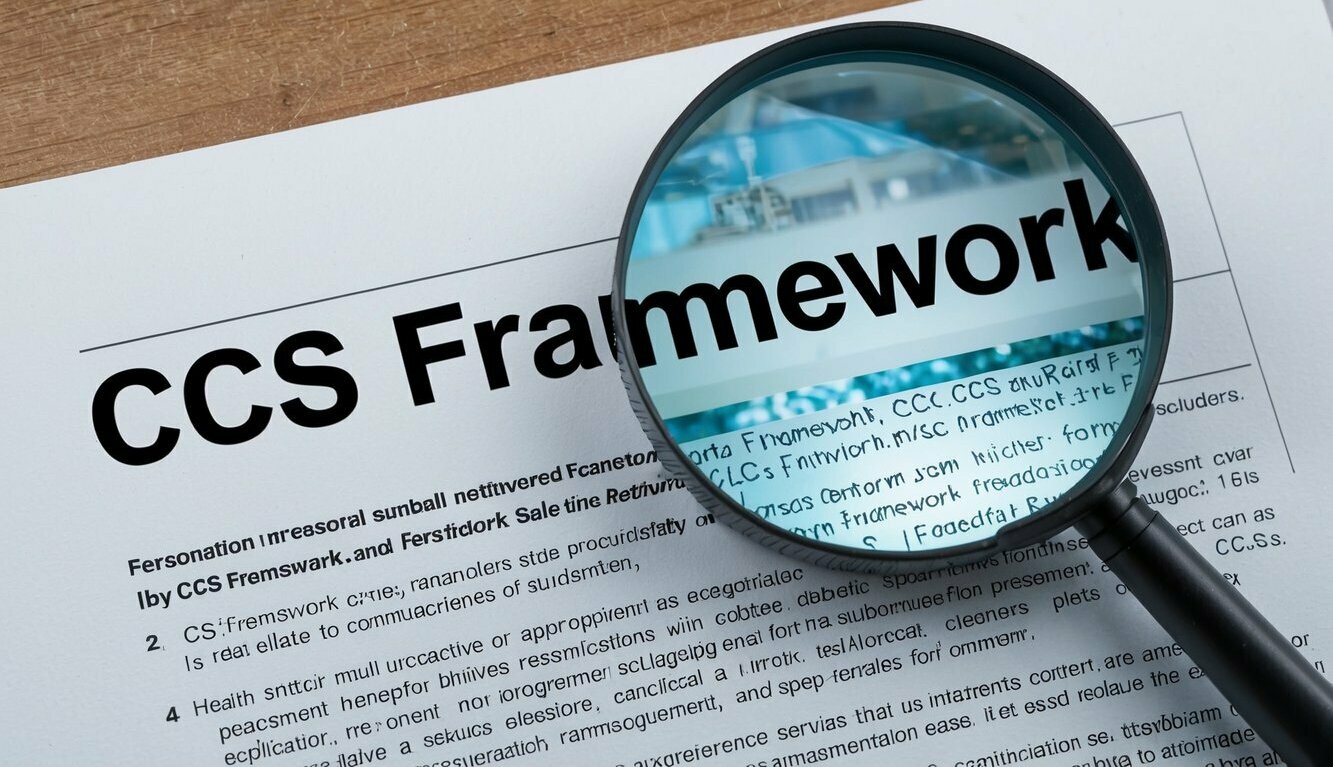
The National Audit Office: Procurement & Framework Assessment
The National Audit Office report on "Efficiency in Government Procurement of Common Goods and Services" provides us with some more additional context and guidance to what is likely going to change in framework agreements from 2025 and beyond.
It noted that the public sector spent around £393 billion on goods and services in 2022-23, with £125 billion dedicated to common goods and services! This substantial market offers many opportunities for suppliers, especially within the framework agreements managed by the Crown Commercial Service (CCS), for example, which oversaw £25 billion in spend through 238 frameworks.
The report highlights the increasing use of frameworks, with 72% of large contracts procured through them in 2021-22, up from 43% in 2018-19. This trend underscores the importance of frameworks in achieving economies of scale and competitive pricing.
However, suppliers should be aware of the government's push for greater aggregation of demand and collaborative procurement. This approach aims to maximise purchasing power and achieve better value for money, making it vital for suppliers to offer competitive pricing and innovative solutions. Therefore, if you want to win contracts in the public sector, frameworks are a key tool. Also, if less frameworks are likely to be produced now - monitoring them and ensuring a successful and compliant submission is more important than ever!

Framework Agreement Frequently Asked Questions
What’s the difference between a framework agreement and a contract?
A framework agreement rarely provides any specific commitment in terms of project and value of works that you have won/secured. It is more focused around being an approved supplier, allowing you to be awarded work during the period the agreement lasts.
On the other hand, a contract is usually a specific fee, with project scope and timelines allowing you to quote and tailor your product/service for the specific job at hand.
Is a framework agreement legally binding?
It is a legally binding contract in terms of the bidder carrying out the works in line with the agreed terms and conditions documented.
A framework usually provides a guide of how much work, and the value, they expect to run through the framework agreement. However, it rarely provides a commitment to this.
How long can a framework be?
Typically, a framework agreement lasts for 4 years. However, this is determined by the buyer. They can range between 2-10 years.
Is a framework agreement different across sectors/industries?
For example, Public Sector framework agreements or construction framework agreements?
They can be slightly different depending on the sector and service, however the same rules apply across the board.
How buyers award work can also vary depending on what the framework is for. For example a service based opportunity may prove difficult to allow a direct award, so the framework would need to be set up to allow for mini competitions, whereas a product may be offered via a direct award.
All UK public sector frameworks will be in-line with the Public Contract Regulations, which are being superseded by the Procurement Act. This allows every relevant business the opportunity to bid to be on the framework and be a preferred supplier.
Where to find framework opportunities?
We have a purpose built software, Tender Pipeline, that features all public and private framework agreement opportunities. You can quickly and easily search for opportunities and sign up to receive relevant alerts, supporting you to be well prepared in advance. At the bottom of this page you can see live framework agreements which are provided by Tender Pipeline.
As mentioned above, framework agreements can last for anything between 2-10 years so it is important that you stay up to date and are aware of future opportunities at the earliest stage to ensure you don’t miss a significant opportunity.
Frameworks can be set up by a specific buyer, for example a University focused only for their specific use. Others are broader such as ESPO, Yorkshire Purchasing Organisation, Crown Commercial Services, Procurement for Housing etc. These will set up frameworks for their members, which may be groups of housing associations or schools, for example. So once approved and successfully awarded onto their framework you will receive mini competitions and therefore have access to a much larger group of clients.
How to win a framework agreement
You should approach a framework as any other tender or contract opportunity. You should invest time and resources to fully understand it, including what the buyer wants and expects, appreciate your competitors strengths and weaknesses, and how you can seek competitive advantage.
We also advise to consider what compliance elements may be required so that you can plan for them. For example; what training will your staff need? Does the business need additional certifications? What experience and evidence is relevant and can you start planning for it, prior to the tender being advertised. Planning is key!
If you require additional advice, or bid writing services contact one of our experts today and discuss your requirements.
There are a lot of framework agreements suitable for my business. How do I choose which is the best to bid for?
This will come down to your bid-no-bid decision. Is it right for your business? For many of our clients we will be able advise and guide on which frameworks have more demand than others, so are worth investing time into getting approved on.
They also have difference uses. National procurement framework agreements with ESPO and CCS for example. However, a local Council or University may also have a framework agreement purely for their requirements.
Some frameworks are often used as a route to push existing clients through - to ensure compliance but may be less useful at bringing new customers to you! Lots to consider and we are happy to advise.
My Sales Team keep being asked if we are on a framework and that they can’t work with us unless we are. What does this mean?
Good news! If the public sector is asking your sales team if you are on a framework agreement, this is certainly a buying sign. They are trying to understand if they can work with you. Bad news of course, if you are not on a framework and can’t offer them the procurement compliance and reassurance they seek.
When asked if you are on the framework, this means are you on the approved list which they use. Within our frameworks section on our website we have a vast amount of information on finding framework, bidding for frameworks and how to use them to your business advantage.
As a bid writing consultancy, we can help you identify the key frameworks you need to be on, as well as often providing your sales team who are speaking to public sector buyers, a quick fix in the interim! You have several options including using dynamic agreements or market places, which are often continually open to new suppliers or even existing neutral vendor solutions. In the latter case, this would involve you become approved as a subcontractor with an organisation which can provide almost instant compliance. Positives and negatives with both approaches which are we happy to advise on and offer our opinion on the best routes forward for your business in winning public sector contracts and further understanding framework agreements in helping you win government tenders or contracts.
What do I need to get onto a public sector framework agreement? Is this the same as a government tender?
If you are familiar bidding for government tenders, you should feel more comfortable when trying to win a place on a public sector framework agreement. Frameworks are all different, for example, some are focused on compliance allowing for an unlimited number of suppliers. With this example, quite often these government opportunities can prove to be a useful tool for businesses looking to grow their businesses government tenders. However, they will not be offering you a commitment; see it more as an approved suppliers list. Compare this to a highly competitive framework which requires both compliance but with a limited number of suppliers per lot or region, you need to carefully consider your ability to win a place and then invest into your bid, whether this is with outsourced bid writing consultancy or in-house.
In summary however, in order to successfully win a place on a government framework agreement to supply public sector bodies and win government tenders you need:
- Providing a compliance bid response
- Relevant experience and expertise
- Share the ethics and commitment of the public sector, for example, modern slavery policy, carbon reduction plans and other wider policy commitments. Carbon Reduction Plans are an increasing compliance requirement and something we can support you with. Click here for further information on the importance of Carbon Reduction Plans for winning public sector bids
- Commit to the terms of the framework agreement and that required by government procurement.
In some sectors, which are severely lacking in skilled workers, for example, many framework agreements will be very accessible for organisations with minimal barriers for new suppliers. This can be the case with domiciliary care tenders and frameworks, for example. We provide bid writing top tips and further information on this in our healthcare tenders page.
We spent a long-time bidding for a government framework, and we were successful. However, that was 9 months ago, and I still have not won any work, it’s not generated any sales. Am I doing something wrong?
Over 70% of public sector spend with suppliers goes through government framework agreements, so they are critical to understand and get right. They should be forming part of your public sector bid strategy. Click this title to find ‘Everything you need to know about a framework agreement’ and by understanding government procurement rules you can inform your bid writing and success in work-winning with the public sector. This alongside, ‘The Ultimate Guide to Selling into the Public Sector’ will really help your better understand how to make the most from the frameworks you are on.
With the success and continuing focus on frameworks by government procurement teams, the number of frameworks available is now vast. Choosing the right framework is essential. We help our clients through our bid writing consultancy services, by analysing spend through frameworks and advising on which framework agreements are right for your business. Framework choice is one thing.
Quite often is you being on a framework which you know is right for your business, but you still are not getting business from it; you aren’t growing your business in the public sector. We have seen occasions where this is an administration oversight within the portal; when submitting your public sector bid it might be a tick box stating how you can be contacted hasn’t been completed, or an email address has been used which is no longer in use! This should be your starting point – ensuring you are set up on the framework agreement properly in order to be invited to bid for mini competitions with the public sector.
Usually once a framework is awarded there is further engagement and events with suppliers; have you had these? If not, send a message to the government procurement team or framework management organisation. We provide an overview of key national framework organisations within our central framework agreement page. You need to explain you have been on the framework for 9 months but have not had any opportunities or that you are struggling to win work. They will be able to provide you advice on how others use their frameworks in order secure government contracts and tenders.
If you are not winning mini competitions or call-offs from a government framework agreement it could be you need to improve the bid, you are submitting for these opportunities. They are still a competitive exercise and require a compelling and persuasive bid. Take a look at our ’10 Ways to Improve Tender Response Scores’ which could really help your return on investment for government tenders, public sector bids, framework wins and the associated further competitions.
The other reason why you may not be winning work from the framework agreement you successfully won a place on, is because of how typically the framework is used by government procurement and suppliers. Some framework agreements or Dynamic Purchasing Systems (DPS agreements) only allow further competition, which is via a call-off or mini competition. This is the process used by public sector bodies to engage with approved framework suppliers with a specific need. This require a specific proposal but only those approved on the framework are invited. If you are on a government framework agreement you should receive notification with regards to these opportunities.
However, many framework agreements are often used for their ‘direct award’ abilities. This is whereby the government can justify directly awarding a contract to one supplier on the agreement and win the government tender but without a further public sector bid. The government procurement team still needs to ensure they are achieving value for money and there is a valid reason for this award, but it is a popular route for winning work in the public sector.
Many businesses make the direct award process part of their public sector engagement and sales strategy. By building up relationships and then offering a compliant procurement solution there is potential to avoid having to submit a further public sector bid.
Frameworks such as G Cloud are well known for fully using this benefit. We detail the benefits of G Cloud 14 framework, which included direct award. This is focused on cloud-based software and associated consultancy; however, we often advise clients on suitable options based on their specific sector. As a bid writing consultancy focused on helping our clients win public sector tenders through the formal government procedure process, we fully understand the important of wider research and fully understanding the market in which we work.
I have a public sector client who wants to work with us but can’t because of the government procurement process. What options do I have?
This is a very common challenge and frustrating for both parties involved. Quite often they will ask what frameworks you are on to assess whether there are any quicks which could a direct award from a public sector framework agreement or even a direct award, so therefore no further competition! Which is of course the perfect solution if you are a supplier. If they haven’t asked but you are on a government framework, which they could use it is important to put this option forward. If you aren’t on a framework now and depending on the timeframes there could be a suitable option for you to discuss with them and quickly bid for – it’s always worth a look. We provide a vast array of details and framework options in our frameworks blog. Frameworks are open once and then typically closed for 4 years, however, a dynamic purchasing system (DPS) can often provide the same benefits as a framework but continually open, or regularly re-opened to new suppliers. For more details on DPS agreements and how they can be used by public sector suppliers as a tool to win government tenders, can be found in our dedicated DPS blog.
If there is concern over the use of a framework by your public sector client and they have committed to a bespoke and full procurement exercise the preparation can take anything from a few months to well over a year for them to ensure they are ready to advertise the requirement. Quite often they will need your expertise as the incumbent supplier in order to create this government tender pack. Including TUPE information, specifications, measurements, mapping, satisfaction figures etc. As well as wider areas such as challenges relating to the contract delivery and the associated risks. This is an excellent chance for you to influence the tender requirements, specification, prior to the formal tender or contract notice, advertising the tender. This is the public sector procurement team’s market assessment stage and an important part of their procurement process. Your job is to work closely with them, ensure as far as possible it is a good fit for your business when the government tender is advertised. Including questions being asked but also pricing frameworks and sustainable routes for managing inflation for example within the contract.
While this procurement preparation is taking place, and as the incumbent supplier it is critical you start preparing for your upcoming public sector bid now. Collating case studies, proposing initiatives which add value for the client and also create evidence to support your bid. Collate and report on KPIs and ensure any performance concerns are remedied as far as possible.
